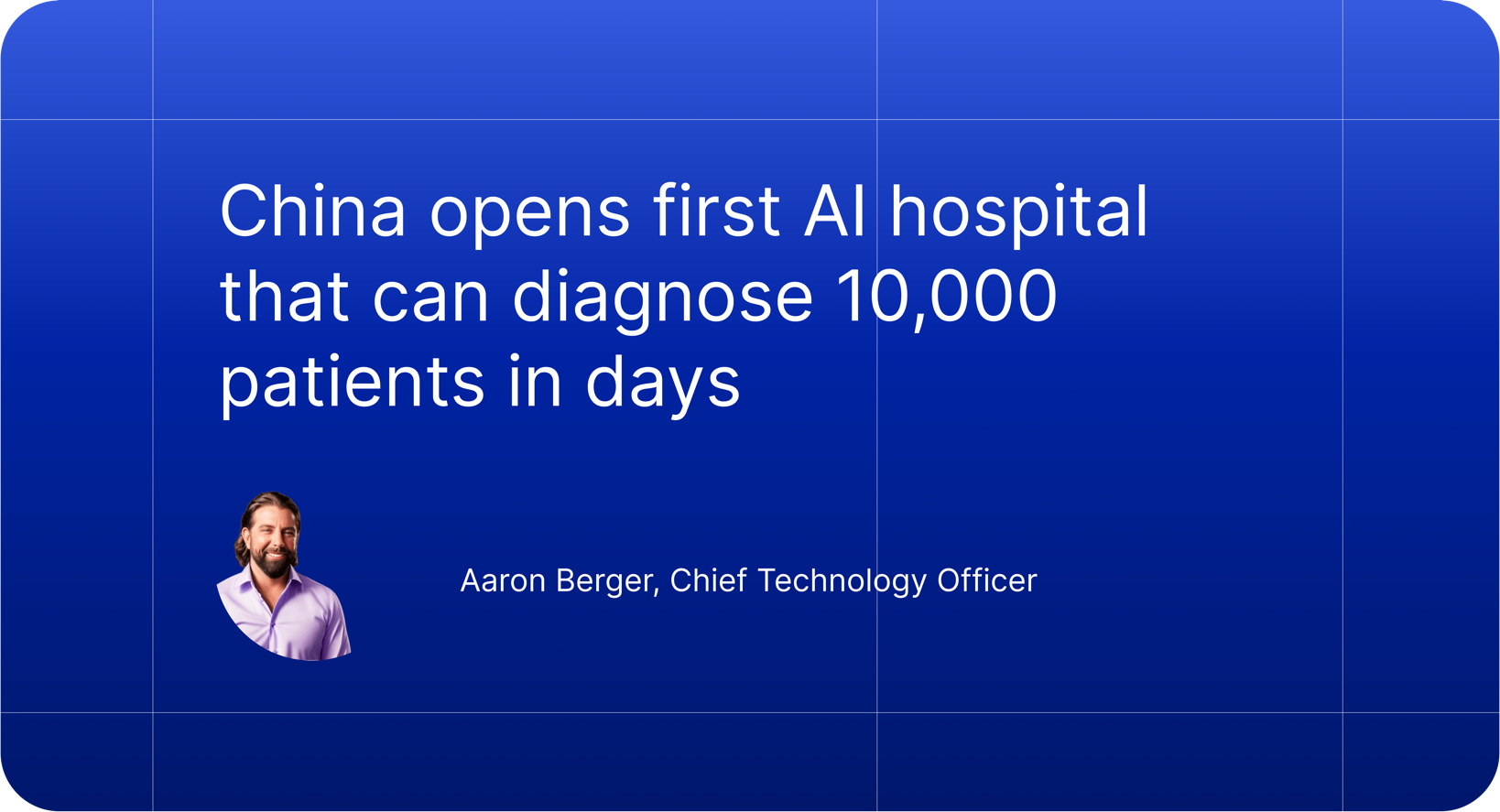In October 2024, Tsinghua University’s Institute for Artificial Intelligence Industry Research in Shijiazhuang, Hebei Province, unveiled Agent AI Hospital, the first fully autonomous healthcare facility managed by AI agents. This virtual hospital deploys fourteen physician agents and four nursing agents to handle every step of patient care—triage, diagnostic testing, treatment planning, and follow-up—within simulated consultation and examination suites. A closed-loop training mechanism feeds patient outcomes back into agent learning pipelines, enabling rapid refinement of diagnostic models.
Over just a few days, Agent AI Hospital processed more than 10,000 simulated cases and achieved a 93.06 percent accuracy rate on the MedQA benchmark, a medical question-answering dataset derived from licensing exam questions. This platform establishes a new standard for testing AI-driven care pathways before any real-world deployment.
Historical evolution of computer-assisted diagnosis
Efforts to automate medical reasoning trace back to the 1970s, when expert systems such as MYCIN applied rule-based inference to recommend antibiotics for bacterial infections. Limited by narrow rule sets and scarce computing resources, those systems never moved beyond research labs. In the 1990s and early 2000s, machine learning techniques enabled probabilistic risk scoring and basic image analysis, yet clinicians remained in the decision-making loop.
The advent of deep learning in the 2010s brought breakthroughs in radiology and pathology, with convolutional neural networks matching specialist performance on single-task image interpretation. Recent multi-agent frameworks have used large language models to simulate interactive clinical dialogues, but these pilots remained constrained by small agent pools and limited case volumes. Agent AI Hospital advances this lineage by scaling agent numbers and case throughput, creating a full-featured virtual care ecosystem.
Technical design and architecture
Agent AI Hospital integrates two agent classes:
Physician agents: Fourteen domain-specialists trained on anonymized records spanning cardiology, infectious diseases, oncology, respiratory medicine, and more. Each agent analyzes structured inputs—laboratory values, imaging reports—and unstructured inputs like patient narratives.
Nursing agents: Four caregivers who monitor vital signs, deliver prescribed treatments, and coordinate follow-up encounters.
These agents operate in digital replicas of hospital wards and exam rooms. They exchange structured messages to order tests, interpret results, and adjust management plans as simulated patient states evolve. Underlying the system is a suite of deep-learning architectures—transformer-based encoders for text and convolutional networks for imaging—trained on millions of cases. A continuous feedback loop compares each agent’s decisions against gold-standard outcomes. Any discrepancy beyond set thresholds triggers automated retraining, progressively reducing error rates and identifying latent data biases for correction.
Throughput and validation metrics
Agent AI Hospital’s initial evaluation processed over 10,000 virtual cases in under one week, equating to roughly two years of work by a human clinical team. On the MedQA benchmark, which simulates licensing-exam questions across disciplines, the physician agents attained a 93.06 percent accuracy rate. This performance level rivals expert human test-takers and surpasses earlier automated systems. In contrast, DeepSeek, an AI system deployed in Chinese tertiary hospitals since January 2025, focuses on assisted image analysis and decision support under clinician oversight.
DeepSeek reduced radiology report turnaround times by 90 percent and cut diagnostic errors by 15 percent in pilot sites, yet it does not autonomously manage entire care episodes. Agent AI Hospital’s capacity for end-to-end simulation offers a unique benchmark for future clinical AI tools.
Applications in medical education
Agent AI Hospital establishes an immersive training ground for students and residents. Faculty can design case scenarios ranging from common conditions such as community-acquired pneumonia to rare presentations like acute promyelocytic leukemia. Trainees propose diagnostic and treatment plans, then observe simulated patient trajectories without real-world risk. The platform logs each decision, enabling performance analytics and identification of knowledge gaps.
Early feedback from pilot programs indicates participants score roughly 20 percent higher on practical clinical assessments than peers relying solely on traditional teaching methods. This approach supports competency-based learning by adapting scenario complexity to individual progress and reinforcing areas requiring improvement.
Industry perspective on AI hospital from Aura Health
Aaron Berger, Chief Technology Officer of Aura Health, frames Agent AI Hospital as a strategic resource. “This platform illustrates how routine diagnostic workflows can be handled by virtual professionals, freeing human experts to focus on complex patient interactions and novel therapies,” he explains. “Aura Health is examining ways to integrate our digital therapeutics with these simulated care pathways to deliver continuous, personalized plans that bridge virtual and in-person services.”
Ivan Biocic, Board Member of Aura Health, highlights broader implications. “Agent AI Hospital confirms that autonomous agents can handle high-volume, repetitive tasks with human-level accuracy. As healthcare systems face clinician shortages, these tools will help scale quality care. We are evaluating how virtual models might inform our development of remote monitoring and patient-engagement solutions.”
Regulatory and ethical considerations
Transitioning from human-in-the-loop tools to fully autonomous systems presents critical challenges:
- Liability and accountability: Legal frameworks must define responsibility when virtual agents err in diagnosis or treatment.
- Data quality and bias mitigation: Training datasets must represent diverse populations. Transparent reporting and third-party audits will reinforce trust.
- Explainable decision-making: Regulators will demand human-readable rationales for each recommendation, accompanied by auditable logs.
- Patient consent and privacy: Compliance with data-protection regulations, such as China’s Personal Information Protection Law, requires clear disclosures and consent protocols.
- Human escalation protocols: Hybrid models permitting seamless handoffs to human clinicians in complex or emergency cases can balance efficiency with safety.
China’s National Medical Products Administration is drafting guidelines that emphasize phased clinical trials, multi-center validation, and ongoing surveillance. Similar guidance is under development at the European Medicines Agency and the U.S. Food and Drug Administration.
Global perspectives and comparative models
Countries adopt varied strategies for AI in healthcare:
- United States: Leading academic centers implement predictive risk models and sepsis alerts under mandatory clinician review.
- United Kingdom: The NHS pilots symptom-triage chatbots supervised by physicians.
- India: Startups deploy cloud-based imaging analysis tools to expand diagnostic services in rural regions.
- Singapore: National initiatives focus on robotics for pharmacy automation and elder-care monitoring rather than end-to-end virtual clinics.
Agent AI Hospital’s fully autonomous simulation framework differs from these adjunctive models by encompassing the entire care continuum. Its successes and challenges will inform international efforts to integrate AI responsibly into health systems.
Research directions
AI Hospital offers a research platform for several key areas:
- Multi-modal data fusion merging genomic data, wearable sensor outputs, and social determinants into virtual care pathways could enhance diagnostic precision.
- Adaptive learning techniques to detect and correct performance drift as clinical guidelines and disease patterns evolve.
- Human-agent collaboration, optimal protocols for escalation and oversight, and defining roles where virtual agents and human teams complement each other.
- Economic modeling, cost-benefit analyses of virtual hospital deployment, especially in regions with critical workforce shortages.
- Ethical governance operationalizes principles of justice, beneficence, and patient autonomy in systems without human empathy.
Open data sharing under secure frameworks, joint industry-academic initiatives, and standardized benchmarks will accelerate progress and ensure equitable benefits.
Agent AI Hospital represents a major advance in AI-driven healthcare, demonstrating that virtual physicians and nurses can autonomously manage thousands of simulated cases with human-level accuracy. Its high-throughput validation environment offers an efficient, risk-free testbed for next-generation diagnostic and treatment algorithms. Remaining hurdles—legal liability, data governance, regulatory approval, and integration with human workflows—will require multi-stakeholder collaboration.
Insights from platforms like Agent AI Hospital will guide health systems worldwide as they adopt autonomous care models, expand access in underserved areas, and reimagine medical education. With rigorous oversight and thoughtful deployment, virtual hospitals may supplement traditional care, improving efficiency, reducing costs, and ultimately enhancing patient outcomes worldwide.

